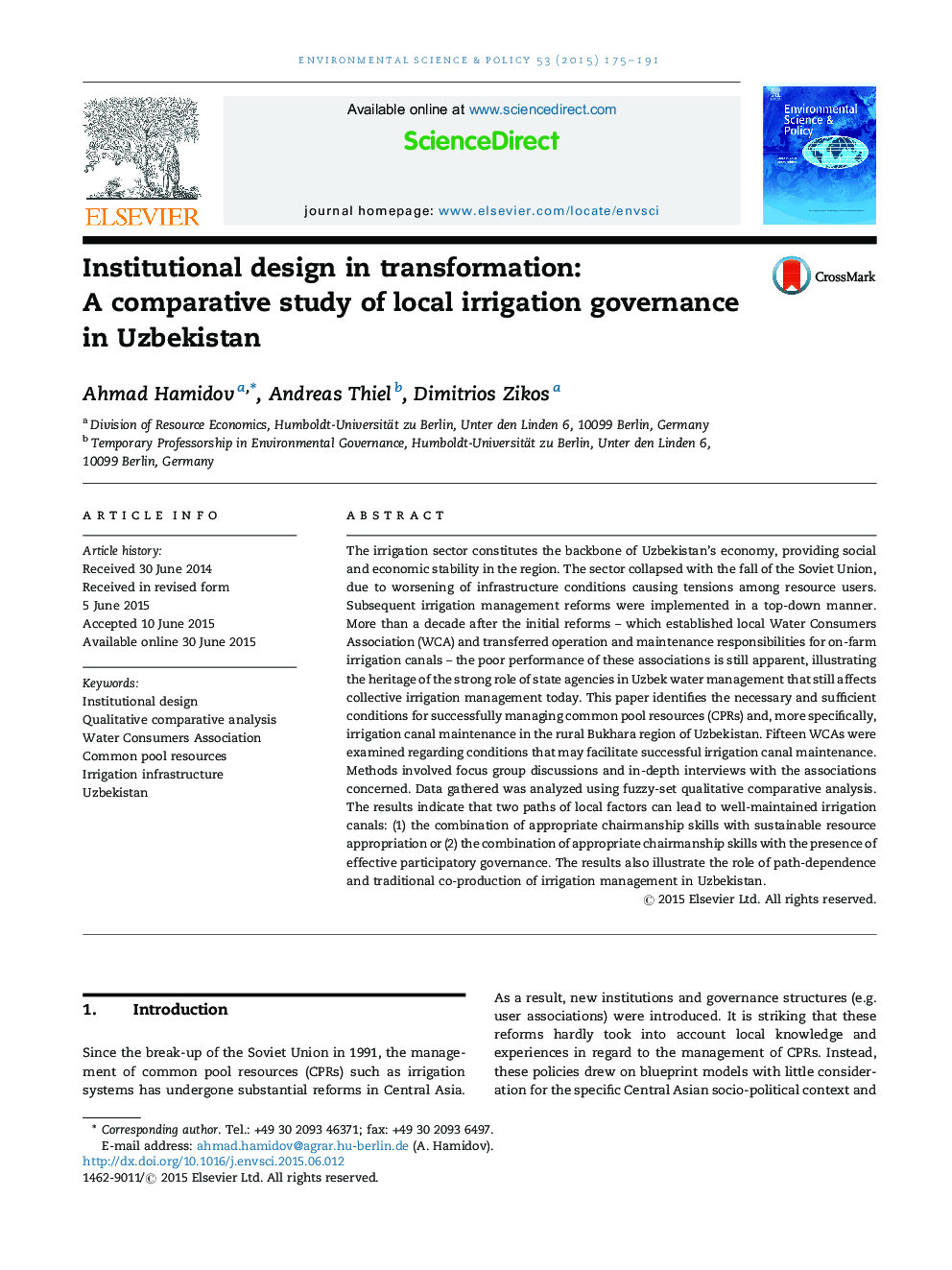| Article ID | Journal | Published Year | Pages | File Type |
|---|---|---|---|---|
| 10504584 | Environmental Science & Policy | 2015 | 17 Pages |
Abstract
The irrigation sector constitutes the backbone of Uzbekistan's economy, providing social and economic stability in the region. The sector collapsed with the fall of the Soviet Union, due to worsening of infrastructure conditions causing tensions among resource users. Subsequent irrigation management reforms were implemented in a top-down manner. More than a decade after the initial reforms - which established local Water Consumers Association (WCA) and transferred operation and maintenance responsibilities for on-farm irrigation canals - the poor performance of these associations is still apparent, illustrating the heritage of the strong role of state agencies in Uzbek water management that still affects collective irrigation management today. This paper identifies the necessary and sufficient conditions for successfully managing common pool resources (CPRs) and, more specifically, irrigation canal maintenance in the rural Bukhara region of Uzbekistan. Fifteen WCAs were examined regarding conditions that may facilitate successful irrigation canal maintenance. Methods involved focus group discussions and in-depth interviews with the associations concerned. Data gathered was analyzed using fuzzy-set qualitative comparative analysis. The results indicate that two paths of local factors can lead to well-maintained irrigation canals: (1) the combination of appropriate chairmanship skills with sustainable resource appropriation or (2) the combination of appropriate chairmanship skills with the presence of effective participatory governance. The results also illustrate the role of path-dependence and traditional co-production of irrigation management in Uzbekistan.
Related Topics
Physical Sciences and Engineering
Energy
Renewable Energy, Sustainability and the Environment
Authors
Ahmad Hamidov, Andreas Thiel, Dimitrios Zikos,
